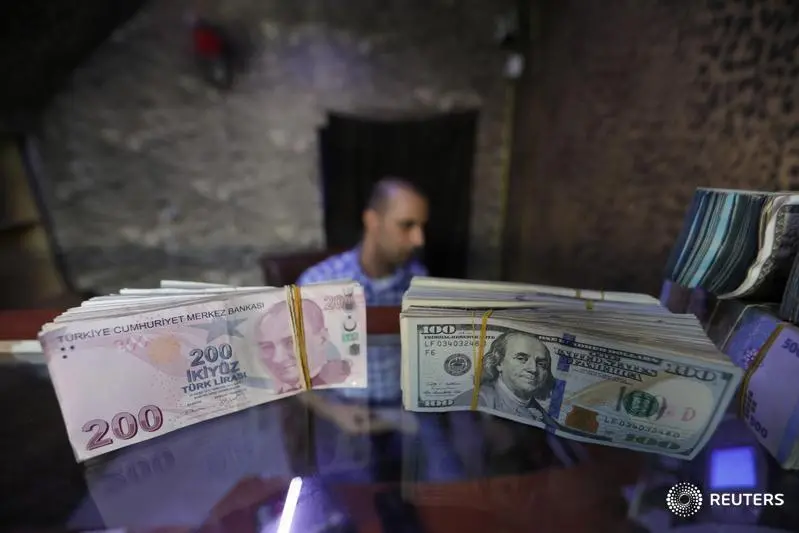PHOTO
Turkish stock listings have raised more than $2 billion this year and are on track for their highest total in 16 years as strong demand from local retail investors gives credit-starved companies a vital funding option.
Smaller companies are leading the way, driven to list shares in search of alternative sources of financing after Turkey's years-long policy of slashing interest rates and clamping down on credit made it harder for them to get bank loans.
However, international investors that would normally target larger listings are shying away from the Istanbul market as high inflation complicates analysis of companies' profit margins and valuations, analysts say.
The rush of smaller firms that have held IPOs this year have on average raised around $60 million each and catered almost exclusively to local retail investors, company filings show.
Istanbul has been the most active among 16 listing exchanges in Europe, the Middle East and Africa tracked by the World Federation of Exchanges.
Larger firms have not been so fortunate with initial public offerings (IPOs), though. A lack of interest from foreign funds, as well as balance sheet uncertainty stoked by high inflation, have made it harder for investors to value Turkish assets.
Annual inflation rose to almost 59% in August and is expected to edge higher into next year. In June, authorities performed a u-turn towards more orthodox economic policy, including rate hikes, to try to reduce inflation expectations.
Another avenue for funding, eurobonds, is open to a few big companies and has recently opened after a year-long hiatus.
But companies in the middle ground in their industries have few options, one local corporate finance adviser said.
"They either have to resort to expensive bank borrowing... or contract their operations, which is the goal of economic policies. The government has hit the brakes, no more easy financing," the adviser said, declining to be named.
The dynamics of Turkish IPOs have changed markedly in recent years as foreign investors withdrew. The share of foreign institutional investors in new IPOs has fallen to just 8% from 78% in 2018, with local retail investors' share up to 69% from 11%.
Musfik Cantekinler, a veteran of Turkish corporate finance now running a private practice, points to constrained bank financing as the reason why many Turkish companies have rushed to public offerings.
"The taps of bank financing have been closed for some time now and IPOs are now a funding source. However some of those which vie for one are not actually ready."
A surge in retail stock investors, which have more than doubled over the past year to more than 10% of the adult population, has been a boon for IPO hopefuls, even as foreign investors retreated.
The Istanbul stock exchange saw 36 IPOs in the first nine months of the year, the second highest figure since records that go back to 1990, with at least 20 more awaiting regulatory approval.
The total value of the IPOs has exceeded $2 billion, and is on track to be the highest 2007. The average size, however, has been getting smaller as IPOs have been geared towards retail investors who mostly buy fewer than 100 shares.
"Unless serious institutional investors are in, it will be hard to have a healthy market structure. There are concerns that companies that lack strong operational and financial performance may have difficulty in preserving their market capitalisation after listing," Cantekinler said.
(Additional reporting by Ebru Tuncay Editing by Mark Potter)




















